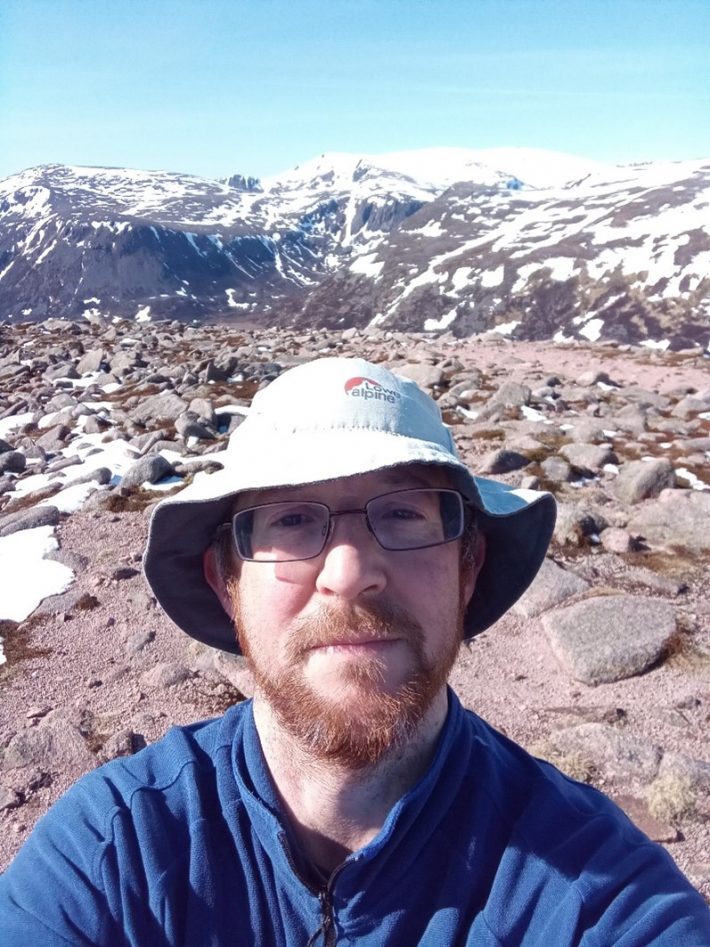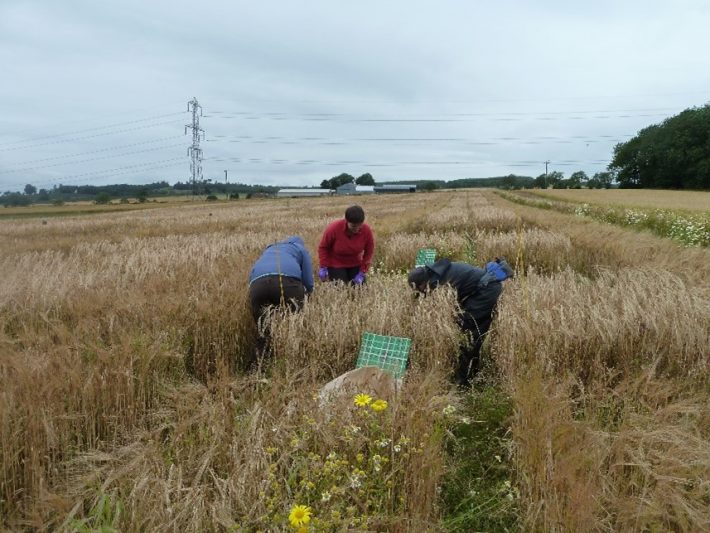An interview with Dr Rob Brooker
The Scottish Policy Group (SPG) are Celebrating 10 Years! As part of our virtual celebrations were doing a series of blogs style interviews. This month we have a special guest feature, Dr Rob Brooker.
Check out Rob’s written interview below…

Tell us about yourself?
I’m a plant ecologist whose work has focused mainly on beneficial plant-plant interactions, and the role of plant interactions in regulating the composition and function of plant communities. I started my career working in alpine and arctic environments, and more recently have looked at how beneficial plant interactions can be a part of sustainable crop production systems.
What does a usual day look like?
As Head of Department at the James Hutton Institute, I’m much less hands on than I used to be, and much of my working day is taken up now with administrative work and meetings. I try to keep in touch with my research interests in particular through collaborations with colleagues and students, and by setting aside a bit of time each week to concentrate on my research work (at least for a few hours).
What ecological challenges are drawing the most attention in your field?
With respect to sustainable crop production, there’s a lot of interest in multi-species crop mixtures. These can deliver – in part because of beneficial plant-plant interactions – greater yields than monocultures of the mixture components. They also provide benefits in terms of soil health and greater structural and resource diversity within the crop systems, as well as enabling reduced inputs, all of which help to enhance overall farmland biodiversity. However, these mixture benefits can be very context dependent, and so although there’s a lot of interest from farmers it’s difficult to give clear guidance on what mixtures would be best for what environments.

Picture above: Harvesting crop mixture plots, including wildflowers to look for biodiversity-ecosystem function effects in crop systems. See Brooker et al. 2021 and the crop mixtures project for further information.
What has changed the most in your field since you have started working?
There has been a huge shift in focus with respect to the purpose of research. When I started, applied research certainly didn’t have the kudos of “pure” research. There is – and I think quite rightly – much greater demand now for research to develop answers to societal challenges, and to communicate findings to a wide range of stakeholders, ideally after having co-developed the research study itself.
Do you have any #FeildWorkFails?
During my PhD I set up some fertilized vs. non-fertilised plots on a mountain top in Sweden, with the aim of contrasting plant interactions in the two plot types. During the winter, voles or lemmings dug a network of tunnels under the snow and munched their way through the fertilized plots. When the snow thawed all the standing biomass simply fell over and I was left with a high-altitude compost heap.
Do you have any great stories about field work?
Lots – I have been very lucky to travel widely to some beautiful places and to make some great friends along the way.
What is the most interesting place you have travelled to for work?
It’s a hard choice but I think it could be Mexico. The contrast of habitats and the cultural diversity and history was astounding, as was the contrast in living conditions between the richest and poorest in society. I also got to see possibly the highest density of mariachi bands anywhere on the planet.
What did you get out of being on the SPG Committee?
I helped to set up the SPG, and so it delivered what I was hoping for, specifically a greater capacity and focus for BES policy work on conservation and ecology in Scotland. However, I’ve been delighted to see how it has become also a focal point for wider BES activity in Scotland. It’s also been really encouraging to see the SPG team and profile grow and establish such a strong reputation.
Tell us about what you are working on now?
I stepped back from the SPG about 5 years back. I think a key test for the success of something like the SPG is its ability to persist through changes of “personnel”, and so I felt it was really important to hand over the coordination role and to leave the new team to do it in their own way. Ruth did a fantastic job as Chair, and I am really delighted by the way the SPG is now being run by researchers such as Izzy and Chris who were at the early stages of their careers when we started out. To me that’s a sure sign the SPG is in good health.
If you had to pick a favorite project you have worked with SPG, what would it be?
Pie-and-a-pint nights – these were very experimental to begin with but are now a really important part of the calendar with a clearly defined purpose, and they generate a lot of loyalty and interest. I will always be very grateful to everyone who contributed so generously to those early events where we refined the format. We had a few wrinkles along the way but the good will and good humour of all involved has kept us going.
Like what we stand for?
Support our mission and help develop the next generation of ecologists by donating to the British Ecological Society.